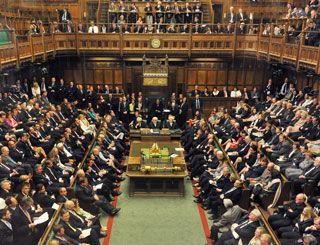The recent revelations regarding the lobbying of parliamentarians are, regrettably, the latest in a long line of similar scandals. Such disclosures serve to undermine public trust in parliament and bring both Houses into disrepute. There is a real danger of adding to the growing perception that parliament is out of touch with the concerns of ordinary people.
I have been calling, on behalf of the opposition, for progress on the introduction of a statutory register of lobbyists along with a clear code of conduct since the start of this parliament. It is now more important than ever before.
Lobbying ought to be a healthy and necessary part of our democracy. It can help politicians to have fully informed debates, and allows for open access to government by constituents, individuals and organisations.
But, as the public administration select committee's recent report stated, while lobbying "enhances democracy … it can also subvert it." The recent revelations regarding the lobbying of parliamentarians certainly reveal the extent to which democracy can appear to be subverted.
As long ago as February 2010, David Cameron stated in his “rebuilding trust in politics” speech that “it’s time we shone the light of transparency on lobbying and forced our politics to come clean.”
Yet on such an important issue, the government has prevaricated and delayed. The previous minister responsible, Mark Harper MP, failed to bring forward any proposals and was unable even to give a timeframe for any action.
When Chloe Smith took over the Cabinet Office brief responsible for lobbying in September 2012 after a small reshuffle, her new brief failed to include any mention of lobbying at all. Indeed, by April 2013 Smith still had no meetings about the lobbying consultation recorded on the Cabinet Office website.
Perhaps it was unsurprising, then, that the government’s 2013 Queen’s Speech did not contain any legislation on a statutory register of lobbyists, despite considerable public pressure to include it.
Let’s be clear—powerful private vested interests have a voice within government, while the public are ignored. The government overlooked more than 1,300 individual submissions to their lobbying consultation coordinated by Unlock Democracy, calling for a register of lobbyists, while accepting numerous submissions from the lobbying industry itself. It should not have to take yet another public scandal to force the government into action.
Today, I have written to David Cameron to request immediate cross-party talks on lobbying and a statutory register of lobbyists in order to reach a solution. As I have made clear on many previous occasions, such a statutory register should include all those professional lobbyists whether third party or not. It will have to have a code of conduct, the first line of which must surely be to forbid financial relations between lobbyists and parliamentarians.
Any code of conduct must be backed by clear sanctions in order for it to be effective, with the ultimate sanction of being struck off the register in the most serious cases, such as making illegal payments to MPs. The vast majority of practitioners within the lobbying industry want to operate ethically, with many supporting a statutory register with a clear code of conduct.
Given the fact that the government has been consulting for a period of years, any further delay or procrastination is simply not acceptable.
Make lobbying healthy
Parliament needs a statutory register of lobbyists
June 03, 2013

© UK Parliament











